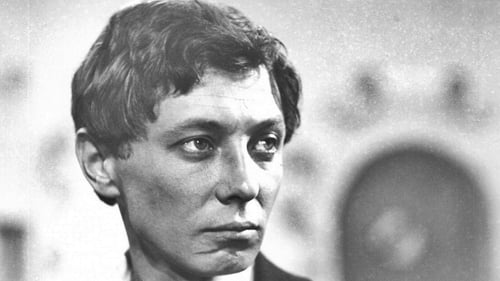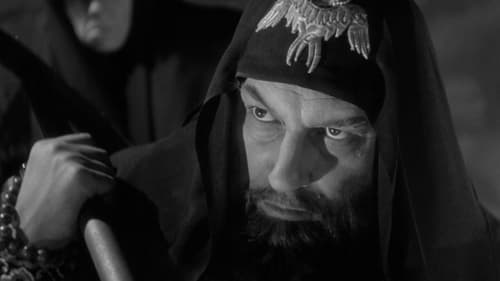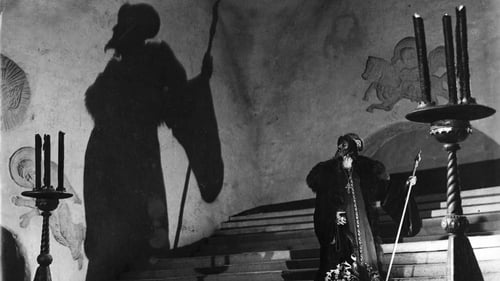
Makeup Artist
The good-natured scholar Christian-Theodore arrives in a small country where miracles occur. He falls in love with the beautiful Princess, whose marriage is a matter of national importance, because her husband will become the new king. But unlike many “suitors”, selfish thoughts are alien to Christian-Theodore. He is sincerely fascinated by her beauty and releases his Shadow, hoping to get a faithful helper in his quest to marry the Princess. But the Shadow is the embodiment of egoism, greed and meanness. Quickly betraying the scholar, he marries the Princess himself and takes the royal throne.

Makeup Artist
This is the second part of a projected three-part epic biopic of Russian Czar Ivan Grozny, undertaken by Soviet film-maker Sergei Eisenstein at the behest of Josef Stalin. Production of the epic was stopped before the third part could be filmed, due to producer dissatisfaction with Eisenstein's introducing forbidden experimental filming techniques into the material, more evident in this part than the first part. As it was, this second part was banned from showings until after the deaths of both Eisenstein and Stalin, and a change of attitude by the subsequent heads of the Soviet government. In this part, as Ivan the Terrible attempts to consolidate his power by establishing a personal army, his political rivals, the Russian boyars, plot to assassinate him.

Makeup Designer
A Soviet 1945 film directed by Fridrikh Ermler based on a screenplay by Boris Chirskov. The film was one of the Cannes top prize winners of 1946.

Makeup Artist
Set during the early part of his reign, Ivan faces betrayal from the aristocracy and even his closest friends as he seeks to unite the Russian people. Sergei Eisenstein's final film, this is the first part of a three-part biopic of Tsar Ivan IV of Russia, which was never completed due to the producer's dissatisfaction with Eisenstein's attempts to use forbidden experimental filming techniques and excessive cost overruns. The second part was completed but not released for a decade after Eisenstein's death and a change of heart in the USSR government toward his work; the third part was only in its earliest stage of filming when shooting was stopped altogether.



